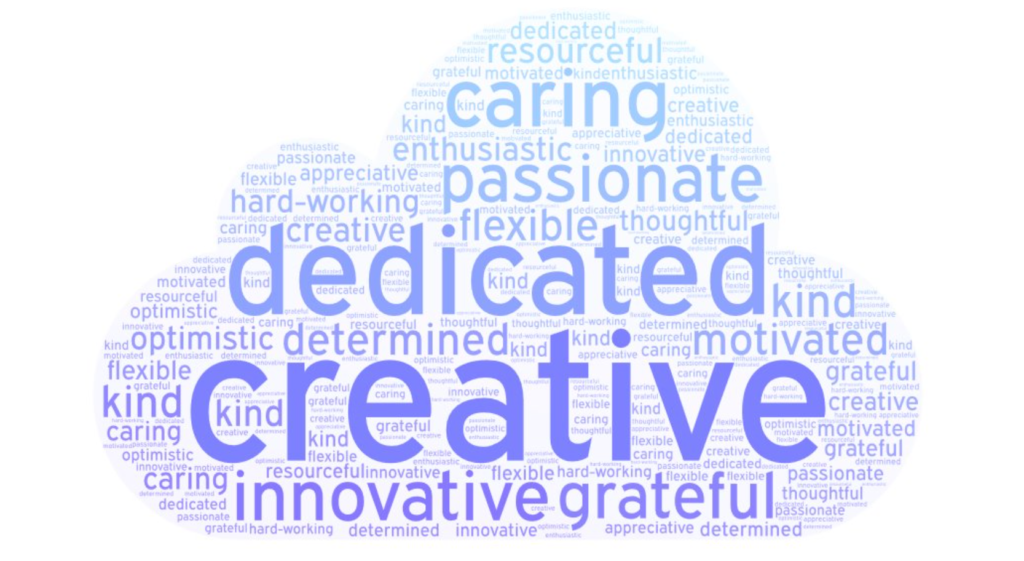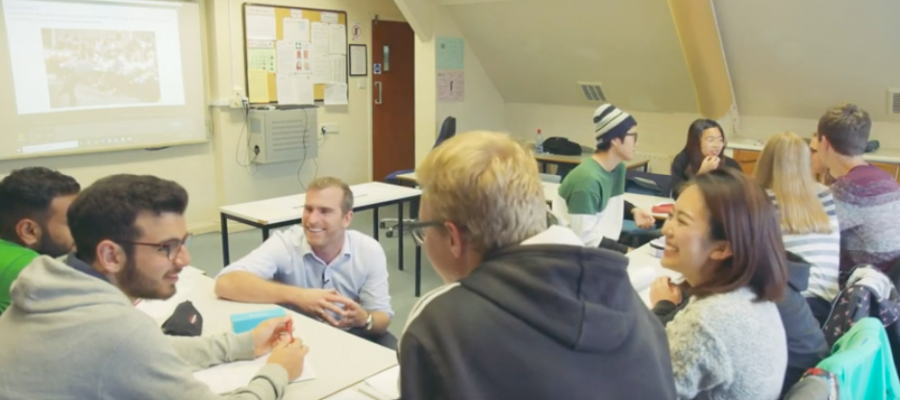They say a lot can happen in a year. Indeed, a lot can happen in a few months. Cast your mind back to the start of the year when everything was still normal for most of us – schools were open, classes were running, and a fully online teaching world was still a far-flung notion. Fast forward six months and everything has changed. Globally, teachers have had to adapt and change like never before. Indeed, it has been a total change. As such what teachers have achieved in that time should not be underestimated.
Casting my mind back to the early days of the crisis when I started doing crash courses in teaching online with huge numbers of participants, there was a palpable sense of panic and fear amongst teachers. But even then, you just somehow knew that everything would be okay. Why? Because we’re teachers. It’s what we do, and the way teachers have overcome and dealt with the challenge put before them has been nothing short of inspiring. But like I say, that’s what teachers do – it’s in our characters. To illustrate and really highlight this point, I recently came across a survey from 2015 of words that define teachers. One look at the Top 10 list and you’ll realize that it’s these characteristics that have enabled teachers to adapt to the challenge laid out before them in the last few months.
1. Creative
2. Dedicate
3. Passionate
4. Caring
5. Grateful
6. Innovative
7. Excited
8. Motivated
9. Resourceful
10. Determined

Being reminded of what makes teachers great is just one thing that I’ve learnt from lockdown, but what other lessons can we take from this ‘new normal’ and which we can continue to apply going forwards?
1. There are ALWAYS new things to try
One of the greatest lessons from lockdown is that it has given teachers the encouragement and motivation to try things that they wouldn’t necessarily have tried in the real-world classroom. In this respect it has given teachers more confidence and freedom to experiment as they’ve looked to engage their learners and make the most of the online environment. It might just have been something you’ve been thinking of using for a while in the real-world classroom, but just never got around to – popular programmes like Kahoot, Quizlet, Mentimeter, Edpuzzle and Padlet for example. For my part, three programs I’ve discovered during lockdown and which I’ve been making the most of are Parlay Ideas, Flipgrid and Socrative. The real lesson here, and one which we should remember even once things return to a semblance of normality is, of course, that teachers should never stop learning.
2. There’s LOTS of support out there
No matter how desperate a situation might be there will always be support out there. Undoubtedly one of the main concerns of teachers going into this situation was how they were going to manage the whole situation. What platform am I going to use? How does it work? What content am I going to use? How am I going to engage my learners? How am I going to get them speaking? How am I going to assess them? Just a handful of the many questions I was asked. But the response from the educational industry – teachers, publishers, organizations – to support teachers has been phenomenal. Indeed, you might go as far as to say that such is the amount of support and content online, that in some ways it makes you wonder what teachers were worried about in the first place. So, the lesson here is that if there’s something you need, a question you need answering, chances are that someone else will already have thought of it and it’ll be online somewhere.
Here are a few National Geographic Learning teaching resources:
Webinars
In Focus Blog
Digital Resources
3. Classroom rapport and relationships are crucial
Creating great class dynamics and rapport with our learners in the real-world classroom is something we can often take for granted by nature of it being ‘in-person’. However, teaching online has really highlighted how crucial creating this rapport is and, as such, it’s definitely something which we have to think more about going forwards. While there are obvious constraints within the ‘live’ lesson, that doesn’t mean it’s not possible – making the most of breakout rooms and pair/group work is one simple way of facilitating this. Similarly, a lot of the techniques we use in the real-world classroom for developing relationships (both teacher-student and student-student) are easily transferable to the online classroom. Arguably more importantly, however, is the idea of creating a classroom community outside of class time. Using class blogs, Facebook pages or Padlets, as well as setting collaborative work through Google.docs, are some easy ways of facilitating relationships between students, where they get to work together and learn more about one another.
4. The importance of asynchronous learning opportunities
If you had asked the average teacher what asynchronous teaching was before the pandemic hit, doubtless you would have been met by many a blank face. However, some might argue that in an online teaching environment, it is how our students learn and interact asynchronously that is more important than the time spent learning synchronously. After all, successfully learning a language can’t only happen in the physical classroom, you need students interacting with the language outside of it too. Looking ahead, I would expect many schools to have more of a focus on both formal and informal blended learning opportunities, to support the face-to-face classroom. At the very least I can see the flipped learning model becoming more prevalent, especially given the role it can play in having a more student centred classroom and higher levels of student engagement.
5. Take time to reflect
When was the last time you recorded yourself teaching a lesson and then watched it back? Have you ever? Probably not. Yet teaching online has given us that opportunity and, more crucially, the opportunity to really reflect on our teaching. The idea of reflective teaching isn’t new, but the online environment actually helps facilitate the process. Aside from actual recordings of lessons, you can save and export the contents of the chat box, thus providing a record of students’ written work; you can take screen grabs of work done on collaborative whiteboards – all things we wouldn’t have access to in the real-world classroom and these can provide great input for reflection. Furthermore, given that teaching online has been a new experience for most teachers, there has been more reason for that reflection, even from experienced teachers. As such, I think teaching online has raised teachers’ awareness of the need to reflect and of the benefits it can have. So, as schools start to close for the summer, take some time to reflect on your teaching over the last few months and think about the lessons that you’ve learnt from this experience.
Just as a final point, while the initial teaching online experience will have been painful for many teachers, there is no doubt that every single teacher will unquestionably be a better teacher as a result of the experience. No matter your teaching context, you will have developed new skills and techniques and learnt a lot about yourselves and your teaching philosophy in the process. You will have discovered new content and teacher support, all of which will help you become even better teachers in the ‘new normal’, whatever that might turn out to be.



